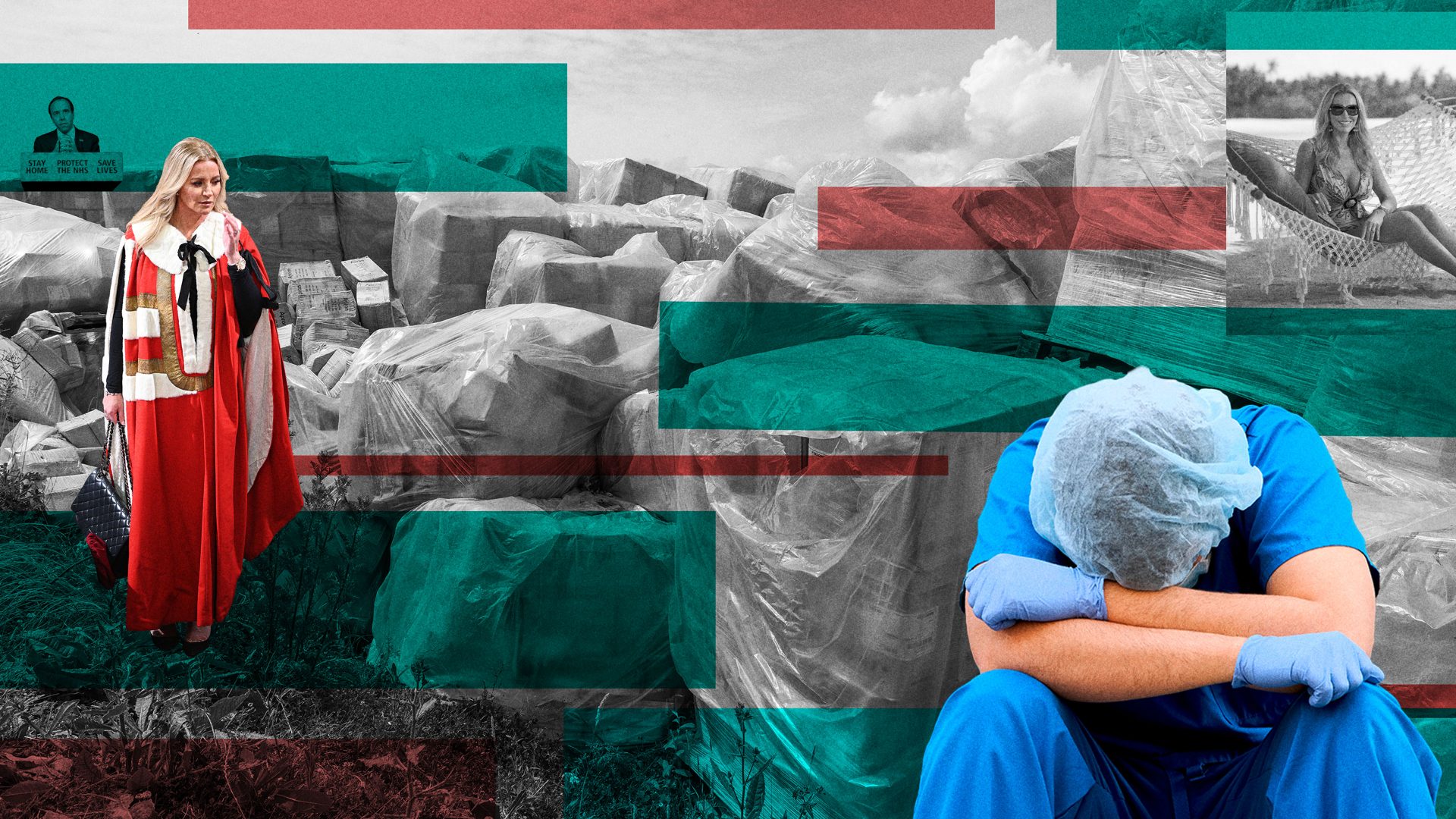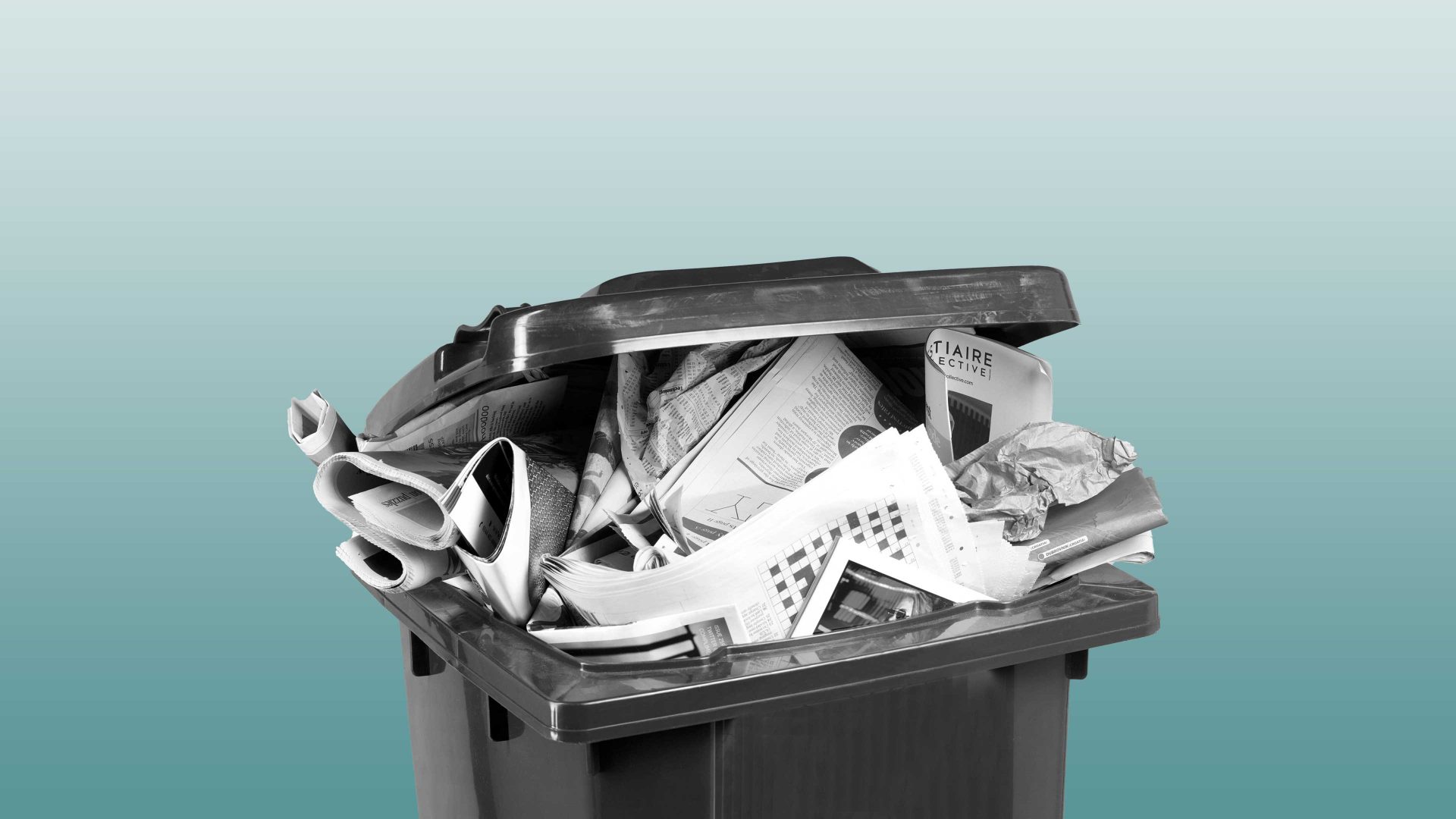When trying to assess a political scandal, it is all too easy – and tempting – to get pulled into the weeds of its detail. Who knew what, and on exactly which date did they know it? Was this specific action a breach of this particular ethical code, or even law? Was there some exception or other?
Tempting as this can be for professional investigative journalists and online enthusiasts alike, it’s almost always a mistake. The second you’re combing through the exact details of contracts, payments and chronologies is when you’re going to lose the casual reader, listener or viewer.
That seems to be the case with Conservative peer Michelle Mone and the PPE scandal that has been mounting since it was first reported by the Guardian last December. Those who know the story really know the story, and every twist and turn of various ongoing investigations. But it has largely passed most people by – not least because “procurement” is not a word regarded as sexy by 99% of the British public.
The simple facts of the story appear to be this: like other MPs and peers, during the early days of the Covid pandemic, Michelle Mone – dubbed Baroness “Mone Mone Mone” by some wits – used her connections to pass on details of companies that might be able to supply protective equipment at short notice to the NHS.
One of those companies went on to receive more than £200m of government contracts for gowns and similar protective equipment – so far, so usual for the so-called “fast lane” scandal, a mechanism seen by some as a means to make sure offers of help were heard, but by others as a way for Conservative MPs and peers to get deals for their mates and donors.
Things get unusual fast, though: companies linked to those £200m of government contracts seem to have made profits of £100m – an extraordinarily high margin for public sector contracts for very basic equipment in a time of global emergency.
More shockingly still, those companies weren’t just owned by some friend or acquaintance of Mone – instead, family trusts connected to her husband held an ownership stake in them. To slightly over-simplify, Mone recommended her own family business to the taxpayer, and then made a vast profit on the deal.
This is where it is useful to step back. It is tempting to look at what rules were broken, if this was legal or not, and so on – and there is certainly a place for that, not least for the relevant authorities. But as we are not those legal authorities, we can take a broader view.
Trust is the cornerstone of modern democracy, which is not like democracy as it was first conceived in ancient Greece. The classical idea of democracy was that every male citizen (sorry women, sorry slaves) should have a role in every major decision that society made – this is referred to as direct democracy.
In the modern world, direct democracy tends to be neither practical nor desirable. Imagine, for example, having to rerun something like the Brexit referendum every time we needed to decide whether or not to build HS2 or a third runway at Heathrow.
What we have instead is representative democracy: as citizens, every few years we choose a group of people we trust to represent our interests in numerous small-ish decisions of which we couldn’t possibly hope to be across the details. The entire system relies on that small-seeming word: trust.
We expect politicians to be representatives of the people, and our system is littered with references to remind them that they are required to act in the public interest – in our interest. The system is already complicated by the existence of the House of Lords, which gives people a lifetime seat at the table without the public ever getting a direct say-so.
The nominal legitimacy of the Lords lies in the fact that peers are selected by our elected representatives, supposedly to add expertise and breadth that doesn’t exist in the House of Commons. That already tenuous legitimacy is frayed significantly when peerages are treated as a reward for loyal service rather than a role as an active legislator for life.
That, then, is our zoomed-out first principle: our society functions only if we more-or-less trust politicians to get on with everything in between election times, and to broadly act in our interests. Where politicians lack their own personal electoral mandate, you would hope they would embrace the principles even more fiercely, knowing that they have really no other justification for the power that they wield.
Looking at the world through that lens, could we justify a situation in which a legislator recommends a company that (to keep things simple) they themselves own? It is possible to imagine that yes, that could feasibly happen.
It would look something like this: a global pandemic is announced, and you realise that one of your factories could easily be adapted to produce high-quality facemasks or gowns instead of whatever they usually make.
You let the relevant minister know that this is possible, disclosing that it’s a factory you own, and you hand over information on your cost price and perhaps even a small profit margin – if your factory would otherwise be making you money and you’re offering to convert it, there is an argument you should get some compensation for offering it up.
The minister then assesses that information, looks at rival prices they have been offered, and how urgently equipment is needed. If they decide that your offer is a helpful one, they take you up on it – probably using expedited emergency procurement decisions.
But because you’re confident the public interest has been served, you immediately disclose the deal. Heck, you’d probably press release it – after all, you’re a politician who’s actually stepped up and “done your bit” to help during the crisis. You might even have a local newspaper photoshoot.
That’s what you can do if you’re confident that the deal you’re making serves the public good and was carried out in the spirit of representative democracy. So it is worth considering just how different the deals Michelle Mone helped to broker were: the ownership of the companies was hidden through a series of offshore trusts. The profits emerged only thanks to months of diligent investigative journalism. Trying to prise out what was disclosed when, to whom, by whom, has been like pulling teeth.
Mone has never come out and simply addressed what happened and why – and certainly hasn’t offered any public takedown of the profits she is said to have made, or the lavish accoutrements (such as a yacht) they allegedly helped to purchase.
In short, at each point at which you would hope for reassurance, we received the opposite. There has been no offer of clarity, no innocent explanation, no proof of accountability.
Michelle Mone’s marketing team loves to brand her as “one of the United Kingdom’s most celebrated entrepreneurs” and “a shining example of how flair and true grit can lead to global success”.
An example can only shine if it does so where we can see it – surely an entrepreneur of Mone’s calibre wouldn’t rely on something as grubby as profiteering through political connections at a time of national emergency? Why can we not get the better version of the story, if it exists?
There is an insincerity running through politics from almost all factions. We fake outrage at quite thin scandals if they relate to a politician or a party we dislike. That holds true for right wing Conservatives feigning outrage over “Sir Beer Korma” just as much as it does for those pretending that the education secretary, Gillian Keegan, said something outrageous last week when she spoke the truth – that no one would look up the A-Level results of those who took them this year in a decade. This constant crying wolf gives us all scandal fatigue, and we lose our ability to discern the truly outrageous from the usual political confection.
Even the broader PPE “scandal” is, at least to an extent, forgivable. Supply chains were disrupted around the world, key equipment (and hand sanitiser etc) were all genuinely in short supply, and the government needed to use unconventional suppliers. Some waste in that process is an inevitable cost of scaling up, and a price worth paying to get PPE to the frontline as quickly as possible.
Some people will, of course, disagree on that broader point – but the core issue is that Mone’s scandal isn’t that. It is much more directly compromising and egregious, and utterly corrosive to the trust upon which politics relies.
In such cases, the right question to ask is rarely “were any rules broken?” Instead, it’s more important for the media to ask “should this be against the rules?” – and if we agree it should be, and yet somehow it eventually turns out it wasn’t, it is incumbent upon us to ensure that the rules change.
This is the real lesson of the Mone scandal, wherever it goes from here. The Conservative administration has been trusted with something incredibly precious for more than 13 years: our collective wellbeing and our collective future.
Instead of taking that task with the reverence and humility it merits, time and again leading MPs, ministers and peers have used it to see how they could line their own pockets, advance their own careers, or help out their friends. That, more than missing Rishi Sunak’s five precious priorities, is where this government has truly failed.




